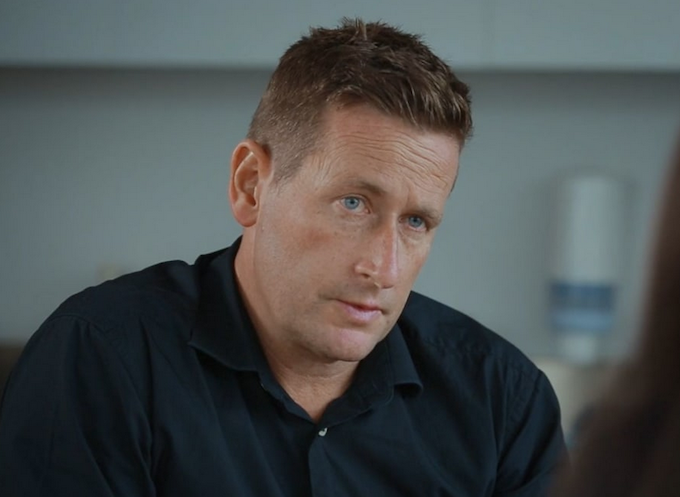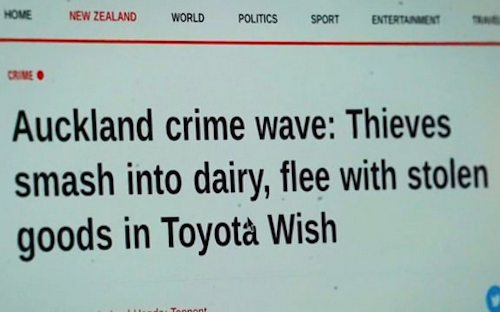
MEDIAWATCH: By Hayden Donnell, RNZ Mediawatch producer
A recent revival of local prime-time TV documentaries has highlighted some thorny social issues and raised awkward questions about justice and equality.
Among them was a revealing investigation this week showing the cost of white-collar crime dwarfs that of welfare fraud, but draws lighter punishments and gets a lot less scrutiny in the media than the kind of crimes that play out in public.
For years, the heyday of New Zealand TV documentary and current affairs seemed to be in the past.
Gone are the days of Mike McRoberts’ mellifluous voice introducing local investigative stories on 60 Minutes after a few seconds of distinctive clock-ticking. The popular franchise stopped producing local content some years ago.
20/20, while still on air, mainly releases repackaged content from the US these days and in spite of the continuing long-form journalism of TVNZ’s Sunday, documentaries have been fading from New Zealand screens for some time.
Lately though, TVNZ has revived the strand Documentary New Zealand with a series of eight new NZ On Air-funded films for TVNZ1 on Tuesday nights between Eat Well For Less and Coronation Street, and on the on-demand service TVNZ+.
Among the most engaging and often moving ones was No Māori Allowed, which aired last week.
Pukekohe discrimination
The documentary delves into the history of Pukekohe, where for decades Māori were subject to discrimination and sometimes, violence.
It deftly navigates several tensions — first between local Pākehā and Māori who lived though an era of segregated movie theatres, but also between the people trying to bring the area’s past to light and the kuia and kaumatua who lived through it, and still bear the scars.
While No Māori Allowed highlighted historic racism and the legacy it has left, this week’s documentary Crime: Need vs Greed trains its eye on a more modern form of racial and economic injustice.
Host Tim McKinnel argues we’ve “sleepwalked” into a $5 billion white collar crime wave of costly fraud and deception offences while the attention of our justice system and media is turned toward often low level street crime.
“While society and the media fixate on gang crimes, ram raids, and other forms of street crime, white collar criminals have been robbing us blind. We’ve sleepwalked into a $5 billion crime wave that no-one wants to talk about. Instead we’re tough on crime and spend billions locking up the poor,” he says in Need vs Greed.
Not only have white collar criminals been robbing us blind — the documentary presents evidence they’ve been getting away with it.
Tax law specialist Lisa Marriot delivers some staggering statistics on the double standard. Her research found people convicted of tax fraud crimes averaging $287,000 have a 22 percent chance of receiving a prison sentence — while those convicted of welfare fraud worth an average of $67,000 are imprisoned 60 percent of the time.
The lack of consequences for white collar crime belies its scale and impact.
$1.7 billion fraud prosecution
A 2014 investigation by New Zealand Herald journalist Matt Nippert helped trigger a $1.7 billion fraud prosecution against the company South Canterbury Finance.
In Crime: Need vs Greed, he says it’s “more than every Treaty settlement combined in New Zealand’s history” or “a hundred years of benefit fraud in one go”.
Given the relative figures involved, it’s worth asking why benefit fraud or street crime like ram raids get so much more attention.
Nippert says part of the reason is obvious: street crime is visceral and a lot more understandable to audiences.
“It’s the comparison between a Jerry Bruckheimer action flick and something much more slow and sedate like a documentary spread across, say, six episodes.
“I think ram raids are quite a violent, shocking act and should be covered. But they are also effectively a pre-scripted sort of action heist movie — with car crashes and getaways and splitting the loot — all condensed down to this one moment of action.
“But the white collar financial crimes often occur very subtly, very carefully, very deceptively over years, sometimes decades,” he says.
Fraud story legal threats
Fraud stories also pose legal difficulties, partly because the perpetrators can afford to hire lawyers and threaten defamation action.
Nippert is routinely threatened with legal action over his investigations. The Herald‘s lawyers have to check almost everything that he writes.

Meanwhile, street crime is more likely to come before the courts, and reporting on it is less likely to be subject to suppression orders and legal challenges from defendants.
“A lot of reporting comes from courts are a reflection of wider problem,” Nippert says.
“You will tend to get far more disadvantaged people in the District Court facing charges. On the other side of it, when you’re looking at sort of white collar crimes . . . I’ve run into suppression orders many, many times. So that not only maybe dampens down the reporting, but also slows it down enormously.”
Journalists have been highlighting inequities in the court system recently, with NZME running the Open Justice project and RNZ’s Is This Justice, which revealed — among other things — that Pākehā are discharged without conviction and granted name suppression at higher rates than Māori, that 90 percent of High Court and Court of Appeal judges are Pākehā, and that judges could be presiding over the cases of people they know.
Human brain ‘and zeros’
Another issue contributing to the comparative dearth of fraud reporting is that the “human brain does funny things when it sees zeroes,” Nippert says.
“The difference between $10 million and $100 million becomes quite ethereal. But everyone can understand what $1000 in the hand looks like.”
Despite the inherent disadvantages fraud stories have in a click-based media economy, Nippert says more reporters should cover them because of the huge costs these crimes impose on victims and society.
That might mean doing a basic accountancy paper at university or downloading Google Sheets onto their phone, but the barriers to entry aren’t as high as some reporters might think, he says.
“I used to think I didn’t have that sort of brain [for numbers]. But then I was made redundant and the only job I could get was a business reporter in the NBR and you know, if you give it a go, I think you’ll find it’s a lot more straightforward than you’ve conditioned yourself to fear,” he says.
“It’s important to point out for readers that some of these cases are alarming and we should be paying close attention because that $100 million isn’t just $100 million from some insurance company — that’s likely to be a thousand families who have lost their nest egg, and whose financial future is extraordinarily precarious, probably for the rest of their lives.”
This article is republished under a community partnership agreement with RNZ.












































